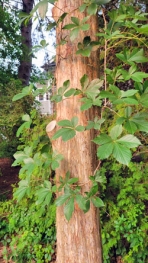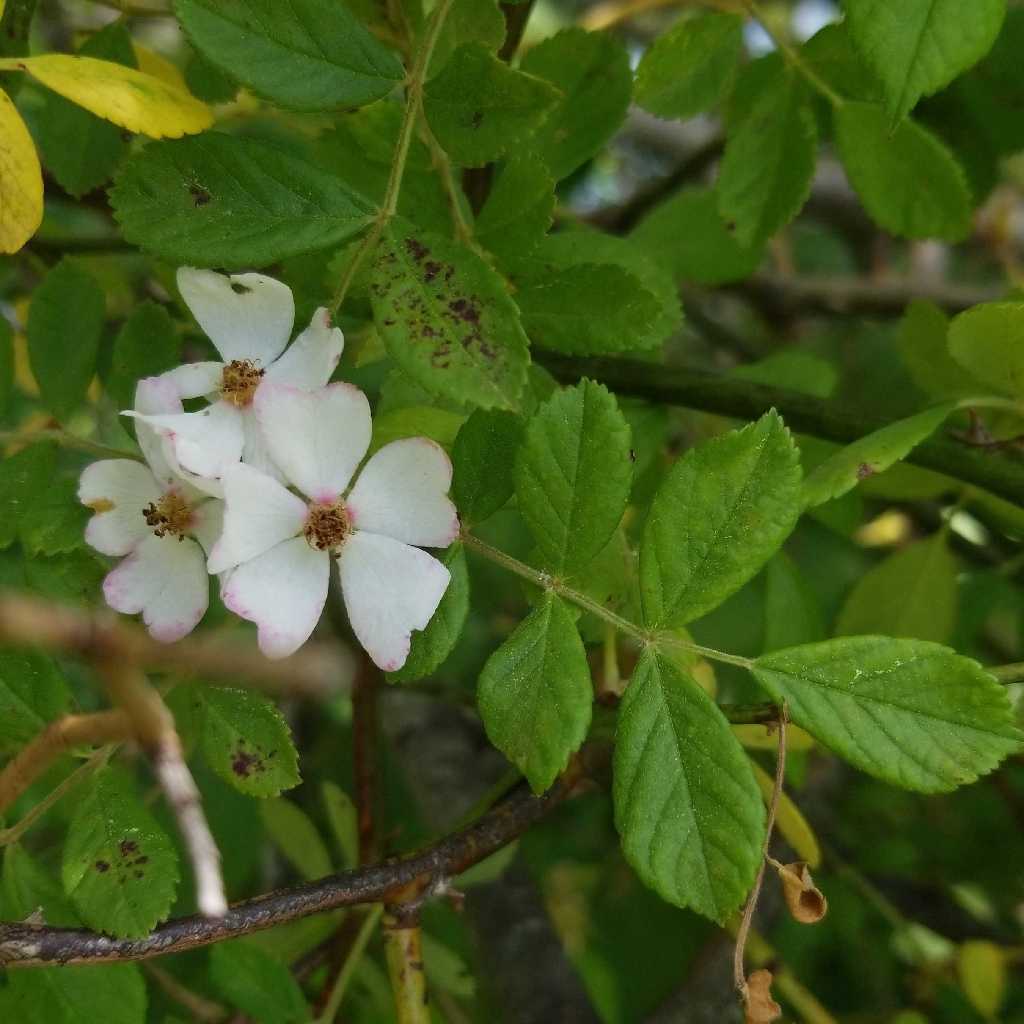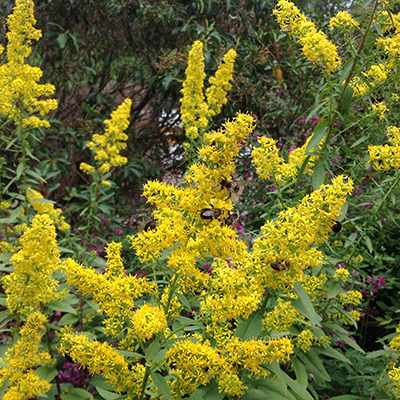
"What's in a name?" A fictional young woman named Juliet once asked that question. "A rose by any other name would smell as sweet," she says.
But what if the rose is a non-native invasive plant?
 “Multiflora rose is an aggressive, stubborn landscape invader with recurved thorns along the green stems,” says Rose Hiskes, a diagnostician at the Connecticut Agricultural Experiment Station and co-chair of the Connecticut Invasive Plants Working Group (CIPWG). “And it’s a state-listed invasive plant.”
“Multiflora rose is an aggressive, stubborn landscape invader with recurved thorns along the green stems,” says Rose Hiskes, a diagnostician at the Connecticut Agricultural Experiment Station and co-chair of the Connecticut Invasive Plants Working Group (CIPWG). “And it’s a state-listed invasive plant.”
Multiflora rose is only one among nearly 100 plants labeled by the state’s Invasive Plants Council because it creates environmental and economic damage. Rugosa rose is another.
Yet, there’s a puzzle.
Most of us label plants as weeds because we find them inconvenient, aggressive, or unattractive. They make us sneeze or itch, or they interfere with a tidy garden bed or a carpet of lawn. As a result of this simplified view, valuable native plants sometimes receive harsh treatment.
“There are many aggressive native plants that homeowners and groundskeepers find troublesome,” says Rose Hiskes. “Among those are several that become particularly noticeable in August and September, such as goldenrod, common milkweed, and Virginia creeper. (Virginia creeper is pictured on the right, above.)
She adds, "People label them weeds, but they have important ecological roles. It’s very helpful to wildlife if you can find a way to live with at least small populations of these plants.”
Goldenrod, for instance, has been called by some botanists the single most valuable native perennial plant for bees, butterflies, and moths. According to National Wildlife Federations’ Native Plant Finder, more than 120 species of butterflies and moths use goldenrods as host plants for their larvae in our Connecticut shoreline zip codes alone. (See image below.)
Note to allergy sufferers: Goldenrod pollen is not windborne. Unfortunately, another native plant, ragweed, is wind-pollinated and blossoms at the same time as goldenrod. Hence, goldenrod got a bad rap.
And then there is the inconvenient truth about poison ivy. This much-feared native plant is valuable winter food for the black-capped chickadee, downy woodpecker, and 50 other regional birds—see the Menunkatuck Audubon Society’s article.
Other unloved natives include violets, hay-scented fern, sassafras, sumacs, and mosses.
Want to increase your invasive plant I.Q.? The Connecticut Invasive Plant Working Group (CIPWG) offers a treasure chest of resources. For instance, see the home page for an easy-to-read guide to managing ten species of concern from the CIPWG home page.
Want to know more? See the full version of this story, and get lots of links to resource sites: Zip06/TheDay.

